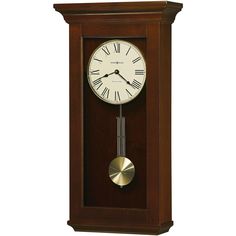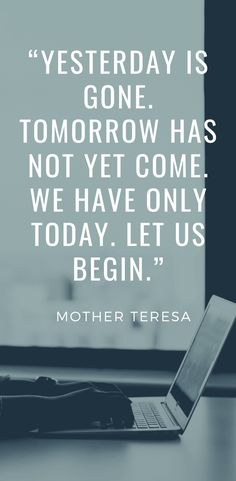This article addresses the matter of time. Due to the fact of our not being products of the world, nor engaging in the activities of the world, we may tend to have a surplus of time on our hands; often, leaving a void in our lives. So the question becomes, what are we doing with this surplus of time?

Are we using it wisely, or we are we allowing this precious time to pass into oblivion? Are we using this time to be productive, or are we simply waiting for something BIG to happen; allowing the clock to aimlessly tick the minutes away? Christians should consider what the Bible says about time. Therefore, this article is about time and the Bible.
Now is the time while we are shut-in; thanks to the pandemic, to think about how to invest it for our long term advantage; both in the natural, and in the spiritual. So we’re going to take a look at time and how to use it to our advantage. First the spiritual.
What is Time
So what is time? Time is a measurable period during which an action or condition exists or continues.
Time: A Gift from God
The first thing that we must realize is that time is God given. It is a precious gift from God.
Life is simply a span of time. It is a span of time that God has given to each of us. A block of moments carved out of eternity, in which we are to live on  this earth, and fulfill the plan and purpose God has for our lives.
this earth, and fulfill the plan and purpose God has for our lives.
When meditating on the subject of time, another important thing to consider is that we don’t know the extent of our allotted period of time. We just don’t know how much time we have been gifted with. We only know what the Scriptures tell us in Heb 9:27 “And as it is appointed unto men once to die, but after this the judgment:” So we only know that it is appointed to man to die. An appointment time has been preset by God.
Now in addition to time being a gift, and of unknown quantity, it is also irrevocable. Once time has passed, it is gone forever. James wrote in the book after his name “For what is your life? It is even a vapour, that appeareth for a little time, and then vanisheth away. [James 4:14]
We can’t borrow someone else’s time nor can we loan them ours. We cannot recapture time that has past and relive it in a way that is more meaningful, or purposeful. We can’t save time, we can only spend it.
The bottom line is, if you have no time left, you have no life left. There is no way that any of us are going to leave this life alive.
Use Time Wisely
In light of these facts, we should value our time seriously, and never take it for granted. The scriptures tell us in Eph 5:15-16 “See then that ye walk circumspectly, not as fools, but as wise, Redeeming the time, because the days are evil.” Now the scripture says, to paraphrase; walk circumspectly-carefully and wisely; redeeming the time. Now to redeem is get back or recover. Here in the scripture it means to rescue or recover our time from waste; to improve it for great and important purposes.
Verse16 says, “Because the days are evil.” Simply, because the times in which we live are evil there are many allurements and temptations that would lead us away from the proper improvement of time and that will draw us into sin. After all, the waste of our time, talents, and gifts is a transgression against God. The scriptures say in Eccl 9:10, “Whatsoever thy hand findeth to do, do it with thy might; for there is no work, nor device, nor knowledge, nor wisdom, in the grave, whither thou goest. So, we must make every minute count.
So we must ask ourselves, how can we use our talents and gifts from God, in the time we have received from God, in order to fulfill my purpose from God? It is not enough to have goals and gifts, but to put them to work in the context of time.
Throughout the scriptures, there are references to the brevity of life, and the rapid movement of our lives through time. For example, Job said, “my days are swifter than a weaver’s shuttle.” [Job 7:6] We have so little time, but from God’s perspective, we have just the right amount of time to do what He has ordained us to do.
Instead of being discouraged about the brevity of life, we need to come to grips with our time. We may not be able to extend our time, but we can determine to a great extent, the quality, and productivity of our time. We can determine our attitude toward time, and make decisions regarding the use of it. What we must do is seek to be a good and faithful steward of all that God has given us.
Now we know that we must be careful with our money. Whenever we think about stewardship, our thoughts almost always focus on money. But we must be good stewards of all of the resources that God has supplied us with, including time. So we must be on guard against the wasting of time. We must learn to respect time. Just as we budget our money we must also budget our

precious time. A schedule is simply a budget of time.
Now as I mentioned earlier, wasting time is a transgression. So what is wasting time? God defines as a waste of time, anything that does not contribute to the fulfillment of His plan and purpose for us. Some examples are: playing when we should be working, sleeping when we should be awake, or spending time doing frivolous things at the expense of spending time with the Lord, or family, or friends. Our use of time must be balanced. Being a work alcoholic, as I was, is a waste of time. Spending 18 hours a day, seven days a week, on a job, career or even a ministry will eventually lead to burnout. A person’s energy and strength are sapped over the long term and that leads to a weakening in our relationships with God, family and friends—relationships that are important in God’s plan for everyone. Balance is the key to life but to work continuously is far from a balanced approach to time. It is living in disobedience to God’s commands. The bible says; six days you shall labor and do all your work, but the seventh day is the sabbath of the Lord your God.” [Exod. 20:9-10]
Now that we know what wasting time is, what can we do about it? First we must determine what drives the use of our time. Many of us allow our days to be driven by external circumstances. We tend to do what unfolds before us moment by moment, allowing others to dictate the use of our time. We yield to every demand placed on us by others. No matter what we’re doing, the phone rings, we answer it, and spend long periods of our time on phone conversations that have nothing to do with our plan, or purpose. Now this can fall under recreation, which is fine. But if it’s excessive, it’s a waste. Now that’s only one example, but the point is, if we aren’t careful, we will end up fulfilling the wishes of others, and not our own God-given purposes.
Some of us are driven by our desires. Whatever we desire to do-we do. If we’re doing something, and we have a desire to rest, we stop and rest. The next thing you know we’ve slept for 3 hours or watched 2 or three television shows. If allow this to go on, an enormous amount of our time has passed, and we won’t even know how we spent it. Some are driven by their desires for alcohol, drugs, or food while others are driven by their desire for material possessions, and money, causing a work- workaholic. We pursue shopping and investing with a vengeance in order to satisfy a deep unmet longing. Some are driven by unfilled restlessness that compels them to be with people and to be busy in “fun” activities from morning until evening.
For the most part, those of us who allow our desires to drive our use of time have not faced the real deep needs and purposes of our lives. We are merely living on the surface of our emotions, seeking to satisfy a void that cannot be satisfied by substances, possessions, activities, or even other people. For more on this void read the article: What do you Treasure on this website.
When we are driven by desire, rarely are we driven in a direction that God has planned for us. The problem is that those of us who driven by our desires, in the use of our time, are usually driven away from our true God given directives.
So we must examine what is the driving force of our use of time, and honestly evaluate if it is pleasing to God. We must yield our time to God and ask Him for His schedule—His
agenda. Moses wrote in scriptures, “So teach us to number our days, that we may apply our hearts unto wisdom.” [Ps. 90:12] In other words, teach us to be conscious of our limited time, here, on earth, so that we can use it wisely.
To keep ourselves on track, we must value what is important. Circumstances, the demands of others, and our unfulfilled desires create a sense of urgency. But rarely are these things rooted in the real importance of the God-given goals for us. So we must keep our eyes focused on what is important.
- If value our relationship with God, then we should spend time with Him in meditation and prayer.
- If value the Word of God, then we should spend time with it
- If value the talents that God has given us, then we should spend time developing them and using them wisely.
Time Hindrances
Now let’s talk about time hindrances. There are three basic hindrances to good time management.
The first is misplaced priorities. Again this involves asking ourselves some questions and writing the answers down. What are your priorities? List the top four. What matters to you the most? Now after doing this look at your  schedule for tomorrow, if you have one; and see if you are actually doing the things that reflect your priorities.
schedule for tomorrow, if you have one; and see if you are actually doing the things that reflect your priorities.
For example, if one of your priorities is “to grow in my relationship with the Lord” is it reflected in tomorrow’s schedule? Now most of us have a job with a mandatory time bracket, so that block of time is taken care of, it is to be dedicated to our employers. But what about our time outside of work. Are we fulfilling our priorities?
The second is procrastination. Procrastination is the most deadly word regarding the use of time, which is why I’m going to spend a little more time on this hindrance.
First of all what is procrastination? It means to put off intentionally, habitually and regularly. A person who practices procrastination is known as a procrastinator. Procrastinators never get anywhere in life. They are always in delay mode. Most procrastinators have wonderful intentions. They may have accomplished all of the things that I’ve mentioned; they may have good priorities, and they may even set schedules and agendas that reflect those priorities. They just never get around to doing what they’ve planned to do. Procrastinators have a problem with implementing what they plan.
We often procrastinate because we hate to make tough decisions. One of the excuses a procrastinator uses is that they haven’t made a decision yet. But there’s no such thing as not making a decision, you either make a decision, or you decide to put off making a decision, until another time. It’s either yes or no, anything other than that is a put off.
Realize that all results come from action. God, as powerful as He is, can’t help us if we don’t take action. The bible is a book of action. For example some Christian singles use their singleness as an excuse for their non-action. They say: “after I’m married, I’ll work on my career, “after I’m married,”

I’ll begin to take life seriously;” “after I’m married, I’ll begin to take my spirituality seriously;””after I’m married,” “after I’m married,” “after I’m married!”
All some of us single Christians can think of is “after I’m married.” Then when we begin to realize how much and how fast time is passing us by, we rush, and get married. Listen, the fact of the matter is we don’t know what’s going to happen “after we’re married.” But the scriptures read, “Let us walk honestly as in the day.” [Rom 13:13] Let us walk as if today is the day of Christ’s return. The time for action is now singles.
Now some of us are naturally afraid of making a mistake. But mistakes can be corrected, but non-action cannot. There is no remedy for non-action, other than action. Today is the tomorrow that we talked about yesterday, so what are we doing with today? The most dangerous word we can use today is—tomorrow. Because, is promised to none of us.
The bible tells us, ‘Boast not thyself of tomorrow; for thou knowest not what a day may bring forth.” [Prov. 27:1] What will we do with tomorrow, and all of the other 24-hour segments of time? Everybody is given the same amount of time, 24 hours, and we must ask ourselves, what are we doing with our segments. Are we using them, or are we allowing procrastination to eat away at our time. Procrastination is the weapon for murdering our gift of time and our opportunities. Procrastination is a tool of Satan to keep us for fulfilling our God-given purposes in life.
The third hindrance to good time manage is lack of concentration. Concentration involves setting your mind on a particular subject or project and staying there until you understand the subject or complete the project. It takes concentration to produce quality works. If don’t develop an ability to focus our attention and concentration on a task, we cannot make the most of our time. For example, if we spend an hour with our bibles, staring at a particular page or verse while our minds are wandering on other things, it isn’t going to be a very productive bible study is it? We must develop the ability to concentrate on a task to the point of completion, if we are going to make good use of our time. For more information on a wandering mind, read the article: Spiritual Warfare: Conditions of the Mind 2 on this website.
One of the biggest drains on our concentration is worry. We often allow  worries concerning the past and the future steal our today s. But the bible tells us, “Therefore do not worry about tomorrow, for tomorrow will worry about itself. Each day has enough trouble of its own. [Matt 6:34 Niv]
worries concerning the past and the future steal our today s. But the bible tells us, “Therefore do not worry about tomorrow, for tomorrow will worry about itself. Each day has enough trouble of its own. [Matt 6:34 Niv]
Misplaced priorities, procrastination, and lack of concentration can absolutely lead us to waste valuable time. This concludes the spiritual aspect of our gift of time.
We’re now going to look at the practical aspects of using our time properly.
The Scriptures give us seven points for good time management. They call for us to take charge of our schedules and agendas and base our time on what is truly important according to the will God for our lives.
The first key is to assume responsibility for the use of our time. Each of us is responsible for our own segment of time. I mentioned Eph. 5 16 earlier which calls for us to redeem the time, which means to make the most of the time that has been given to us. Time is our slave; it has to do what we command it to do. But we must choose to take charge of our time to the best of our ability. If don’t manage our time, somebody else will; and WE know who that is.
The second key is: seek God’s guidance. According to Eph 2:10, “We are His workmanship, created in Christ Jesus unto good works, which God hath before ordained that we should walk in them.” Also, 1 Peter 4:2-3 reads, “that he no longer should live the rest of his time in the flesh to the lust of men, but for the will of God. For the time past of our life may suffice us to have wrought the will of the Gentiles…. So we are to seek the will of God for the use of time, and, not to fulfill our own flesh. We must ask the Lord each morning to help us identify the good works that he has planned for us daily. To repeat Ps. 90:12 “So teach us to number our days so that we may apply our hearts unto wisdom.”
Now this doesn’t apply only to any kind of ministry, but this includes our secular duties. Our Jobs and businesses, our creative energy, our recreational time especially, because, that’s when we can get into the most trouble.
The third key is, to plan our schedules. Loads of valuable time can pass without making any progress towards our goals if we don’t plan our schedules, and set our goals within deadlines. We must organize our time for maximum productivity. When we make our plan, always schedule time for God; either in prayer, the Word or both.
The fourth key is, to stay organized. I have found that one of the greatest stealers of time is when you have to search for things before you can start to work. Not to mention that it’s frustrating. Hunting for missing documents or other items is a total waste of time. We must stay organized as we work. The bible calls for us to do things in decency and in order. [1 Cor. 14:40] Organization is the key to efficiency. We can’t get things done as quickly or smoothly without order, and organization.
The fifth key is to rely on God’s wisdom. As we plan by breaking down large goals into specific tasks, ask the Lord for His guidance. We must ask Him if we’re doing things in the right order. Are we spending the right amount of time on each task? Have we set the right deadlines?
The sixth key is, to eliminate the unimportant. We must set priorities. The best way to do this is to make a list of what is to be done the next day. Put the four most important things on top of the list. These must be items that directly relate to your overall goal. If there’s something on the list that doesn’t apply to your overhaul goal, then it doesn’t belong there. If you’re going grocery shopping, and you’re making a list, change your oil doesn’t belong on the list. Why? Simply because it doesn’t fit into your purpose, which would be to buy groceries. So we must eliminate what isn’t important to our goals to effectively use our time.
The seventh and final key is, to review your day. At the close of each day, review the way in which you’ve spent your time. Evaluate your schedule, and compare what you did with what you intended to do. We should ask ourselves:
- – Did I make good use of my time?
- – Did I procrastinate?
- – Was I able to maintain my concentration?
- – Did I engage in activities that were truly priorities?
- – Did I make any progress at all towards my goal?
Now I personally don’t wait until the end of the day. I have to check myself throughout the day, and ask myself, what am I doing? Is this the wisest way to spend my time or am I sidetracked? Is there a better way that I could be spending my time right now? Since I’m self-employed, and total responsible for my own time, I have to be especially careful. I can’t wait until the end of the day because too much time may have passed. It’s very easy to spend too much time on the phone, even if it is on a business call. We won’t even address the issue of personal calls during the day. It’s easy to tinker on the computer too long. If things are under control, I can take as long of a lunch as I want, but is that wise?
Now I mentioned earlier that we must learn to respect time. Not only must we respect our time, but we must respect the time of others, as well as ours. If have an appointment, it is important to be on time. When we keep people waiting on us, we are wasting their time. It’s total disrespect-it’s rude.

When someone remembers a special occasion, like our birthdays, or if we’re sick, or we have a death in our family, and someone sends us a card, we should appreciate it whole heartedly. That person cared enough to take their valuable time, to express their care for us. It may have taken an extra stop on the way home. Perhaps a few minutes shaved off of their lunch hour. They may have even taken the long way home. In any event they took their valuable time to show us that they cared.
Summary
It’s time for all of us Christians to take an inventory of how we’re spending our time. If recognize that we’ve made mistakes along the way, we must ask the Lord for forgiveness for wasting his gift of time, and ask for His help. One day, we will have to give an account of the time that God has given us. As the scriptures tell us “and they were judged every man according to their works.” [Rev. 20:13]
The wise use of time is the mark of good discipline, and discipline is essential for success. Remember the clock is ticking. Don’t waste your time, use it wisely. Focus on what matters most: God and His Word. AMEN
Questions, concerns, and comments are welcomed below.
Blessings!
WATCH THE FULL VIDEO!

Heloo there, I really want to say a big thanks to you for sharing this insightful and informative article on the topic titled;time and the Bible. Time is indeed a precious gift from God. It has been from the onset. Anyways I must say this article is really motivating and inspiring. I haven’t actually been utilizing my time well and I haven’t been studying the world of God. I think I am going to make amend. Thanks
Hey Thousand: Yes, time is the most valuable asset we have and we must use it wisely as it goes by quickly. I’m glad to know that your are going to get back into the Word. Be blessed!
hellooo dear, wow what an amazing post you have here, it really brings out your sense of humour, nicely done here, i a really gratefull with such an amazing post you have shared with us so far, your site really is full of such an amazing post, i must say i have been saving each of your pages to learn alt from these article, it really has been an interesting content, cant wait to show my fiends, ill surely share your contents on my social media page. thanks my best wishes here
Thanks Skuchmane and thanks for commenting!
you’re such an amazing review I must say that you did an excellent job sharing such an amazing review and I look forward to sharing it in my blog so that others could see and also read once again thanks for the great work and keep up the good work of God that you are doing…….Off to share
Thanks Evans, I appreciate you kind words. Thanks for commenting and thanks for sharing.